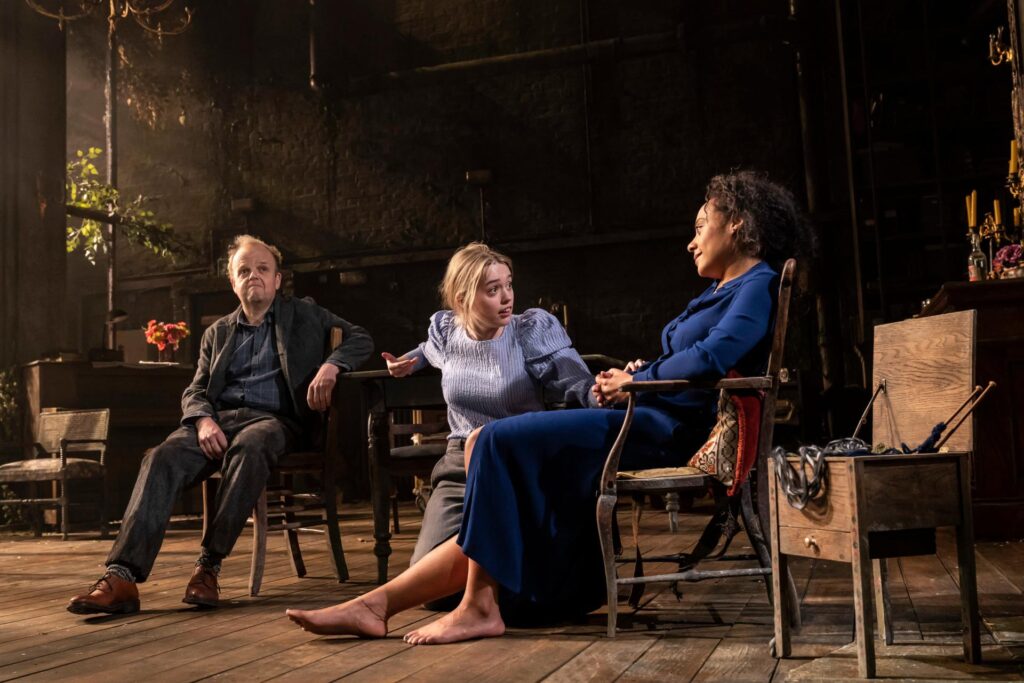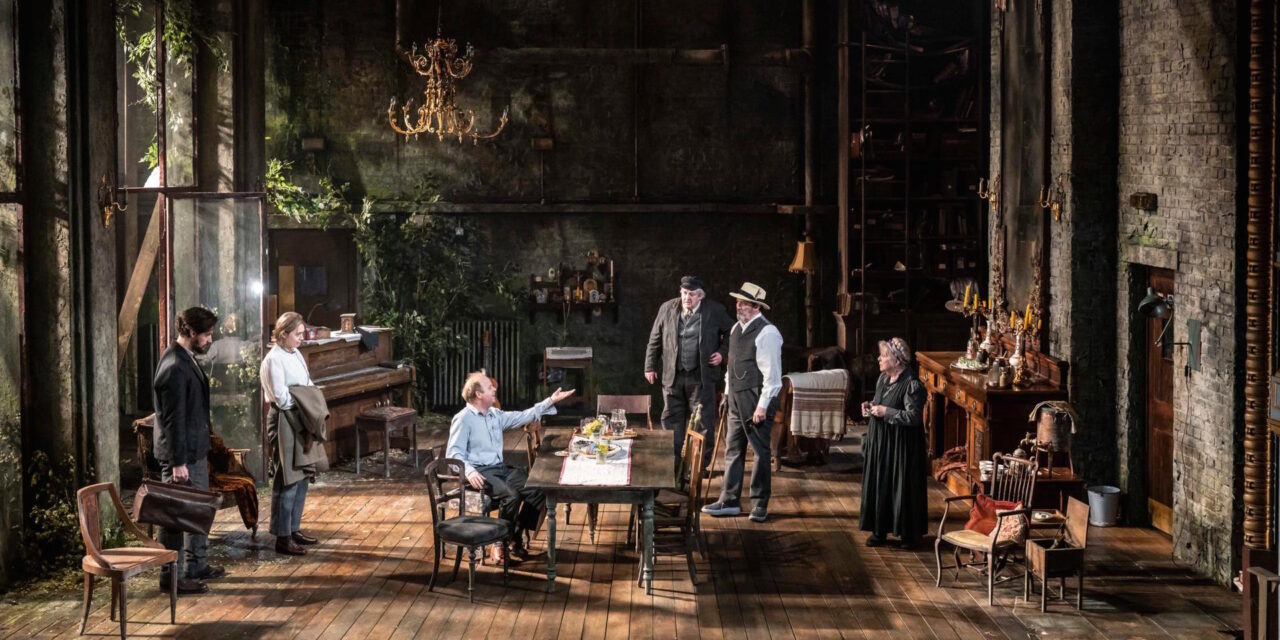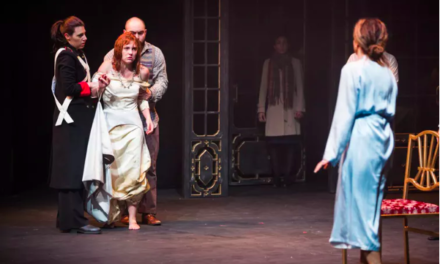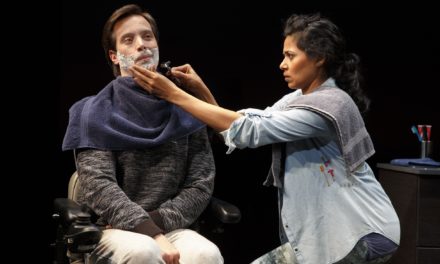The wilting characters of Uncle Vanya would like us to believe that their scenes from country life should not amount to much, except, perhaps, for an endless succession of tedious trifles. The unremarkable demands of an unremarkable world knocking bang bang bang on the door. Yet in Ian Rickson’s full-bodied production at the Harold Pinter Theatre, even tedium and apathy become utterly riveting. With its bold additions to Chekhov’s 1896 play, Conor McPherson’s canny adaptation infuses this impressionistic study of ennui, vocation, and longing with a new sense of unruly life.
It’s not entirely clear to me how McPherson pulls it off, but he manages not to fall from the tightrope he’s walking. For his is not merely a contemporized, fresh-out-of-water translation: as early as the play’s first moment, there are bits and pieces of new dialogue added, which generously expand upon Chekhov’s curt lines, picking up on his transient cues and running with them to new destinations. These mischievous elaborations—or excursions—make the play somewhat tidier, less patchy in the flow of its dialogue. The result is more coherence than Chekhov allows us to have, coupled with achingly punchy and acerbic turns of phrase voiced by the characters. Cheeky as they may be, McPherson’s interventions fully enlighten the play, illuminating it from within its anguished heart.
Rickson’s direction treats this vivid adaptation with an orchestral understanding of its multitudes. He expertly modulates both the group tableaus and the two-hander scenes, though the latter feels even more nuanced than former. His consummate cast of eight actors displays perfect synchrony from start to finish; each one approaches their part with an all-encompassing view of its humor and gloom. Aided by McPherson’s shiny language, their performances refrain from dictating how they ought to be received or responded to. Laughter from an audience member is often mixed with another’s gasp of sadness. A delicious uncertainty prevails in the house.

Toby Jones, Aimee Lou Wood, and Rosalind Eleazar in Uncle Vanya at the Harold Pinter Theatre. Photo: Seamus Ryan.
Toby Jones is superb as Vanya. He combines childish archness with elderly dejection and filters them through a grinding mid-life crisis. This Vanya sees the comedy in his despair, knows how to poke fun at it, but also lets himself be wrecked completely. Jones’ muscular performance throbs with physical and vocal twists that create a tender portrayal of his suffering. Aimee Lou Wood deftly plays his niece Sonya, whose closing speech becomes in her hands as haunting as it is poignant. Clear-headed with a dash of adolescent awkwardness, she shines particularly in her moments with Astrov. Wood conveys the tremblings and flutterings of first love with an evolving, beguiling sense of self-awareness.
At its most elemental, Uncle Vanya depicts how the insular lives of Vanya and Sonya on a farm get derailed by the extended visit of Sonya’s father and his second, much younger wife Yelena. Rosalind Eleazar’s Yelena is visibly pained by her unhappy marriage and her unrealized potential as a trained musician. Consumed by boredom, Yelena becomes a siren-like presence to which all the male characters are drawn magnetically. Within seconds, Eleazar can nimbly alternate between sustaining a poker face and displaying luminous transparency. Her irascibly pompous husband, Professor Serebryakov, is almost a parody of himself. Ciarán Hinds plays this affectatious man with delicate strokes that are rich in detail. And as Astrov, Richard Armitage presents an eco-friendly doctor who vacillates gently between his faded gravitas and earthy amicability. Armitage’s take on this effusively jaded character glistens with unexpected moments of wit.
Rae Smith’s scenography places us in an infinitely adaptable and beautifully indistinct sun parlor, blurring the boundaries between the play’s four distinct locations. It’s a figurative space that wears a realistically rendered cloak. Large, tattered windows let in Bruno Poet’s sublime lighting, which fills this liminal arena with the piercing rays of the sun and the melancholy of the moon. Just outside are some trees, a few of which appear to have made their way through the windows: the sense of lethargy that prevails in the house must be so strong that even nature has been at liberty to encroach upon its interiors.
The keystone of Rickson’s production is its ability to embody and meditate on this lethargy without plunging the audience into it. It’s one thing to assemble all the right ingredients for a pitch-perfect Uncle Vanya, but it’s quite another to alchemize them into a harmonious whole. This theatrical feast triumphs on both fronts, reminding us of Chekhov’s everlasting might.
This post was written by the author in their personal capacity.The opinions expressed in this article are the author’s own and do not reflect the view of The Theatre Times, their staff or collaborators.
This post was written by Mert Dilek.
The views expressed here belong to the author and do not necessarily reflect our views and opinions.


















